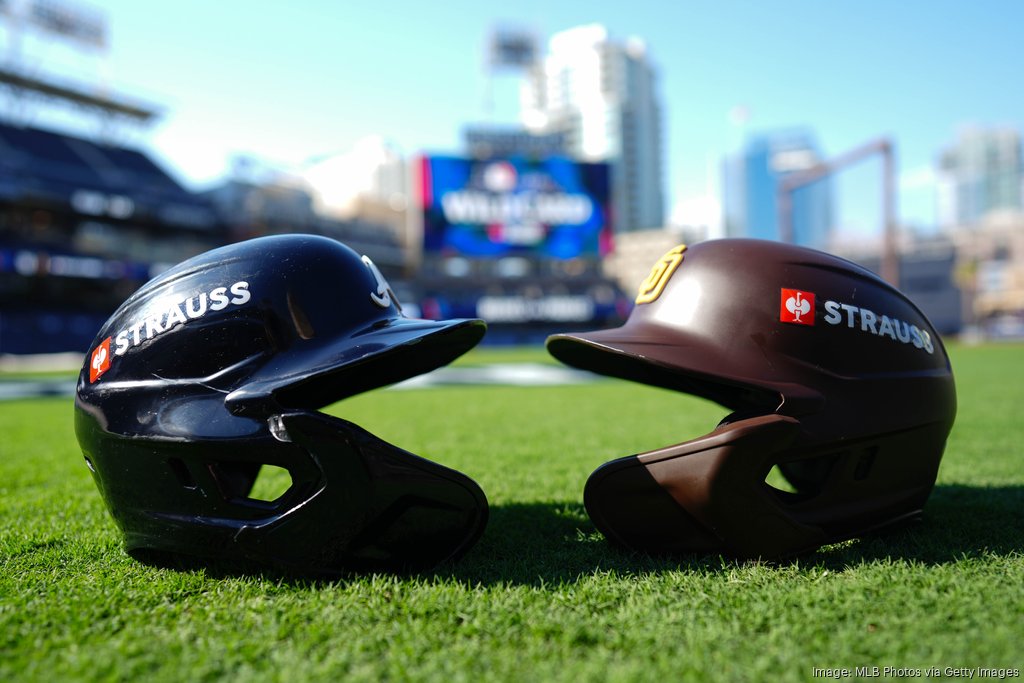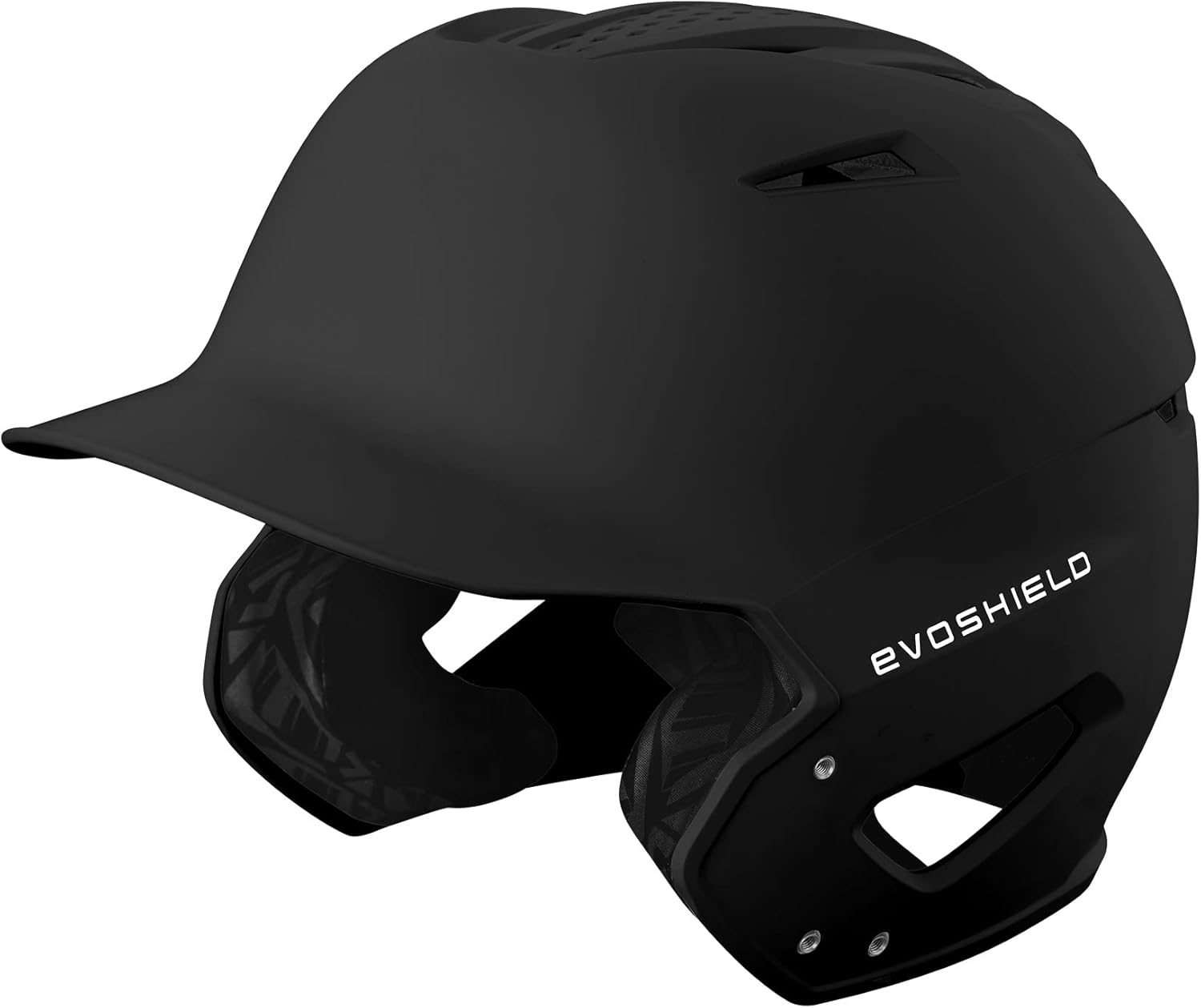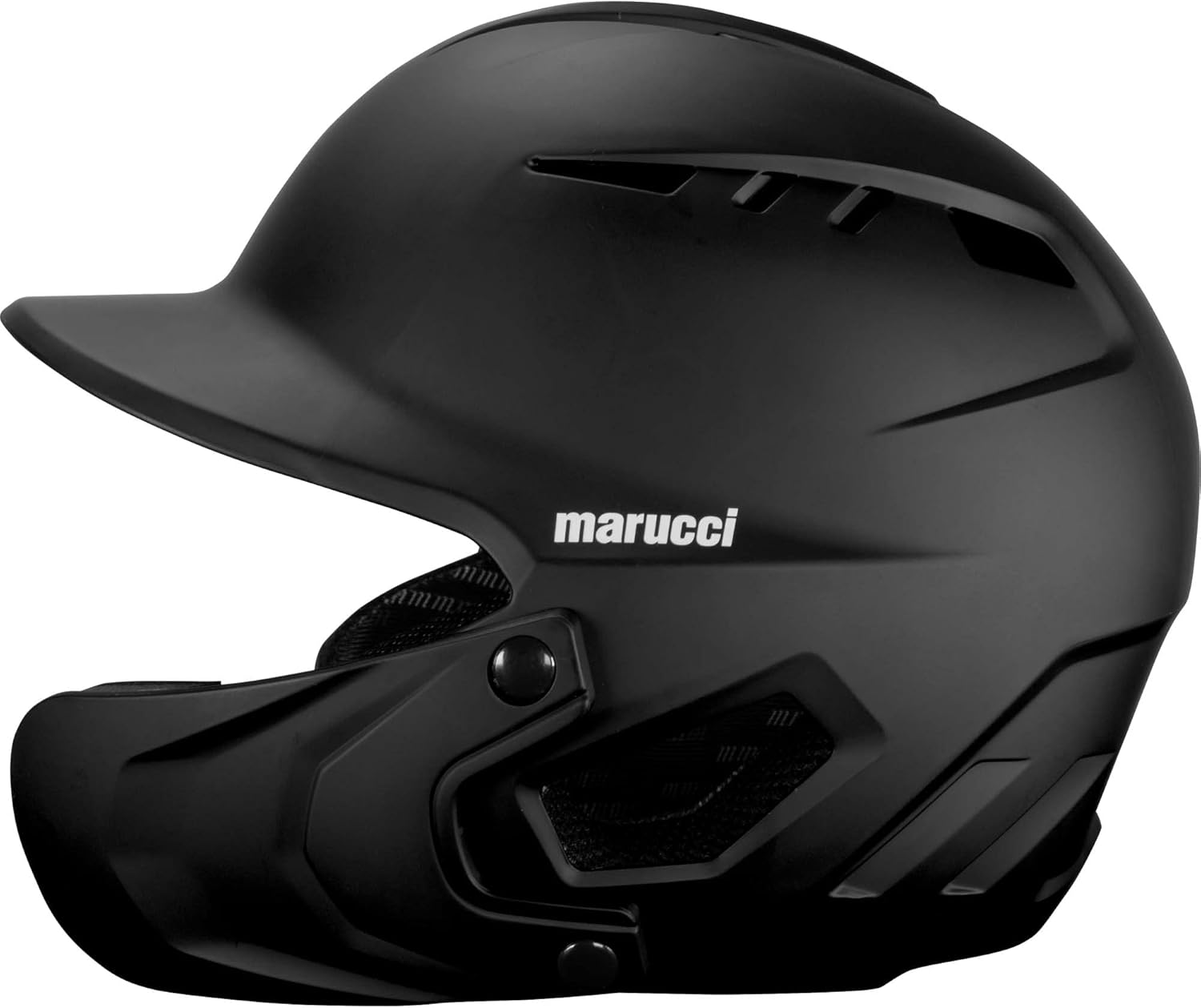The History of Baseball Batting Helmets
Although the batting helmet is the most well – known piece of protective gear in baseball, it didn’t emerge simultaneously with the birth of the sport. According to available information, the first athlete to wear a helmet on a baseball field was Roger Bresnahan, a catcher for the New York Giants in 1907. He crafted a simple protective head covering from leather; he had previously invented baseball shin guards. However, at that time, his leather – made batting helmet was resisted by many players and team owners and was not immediately widely adopted.
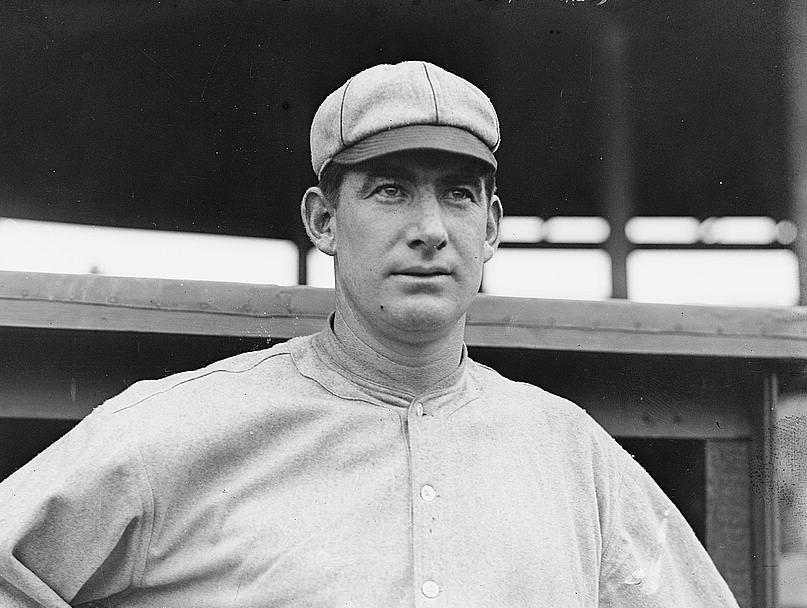
Fast – forward to the 1930s. During the era of racial segregation, Willie James Wells, a player in the Negro Leagues, donned a modified construction worker’s helmet after suffering a head injury. In terms of appearance, this was the first time a helmet closely resembled the current batting helmet style. Especially after Ray Chapman, the shortstop of the Cleveland Indians, died after being hit in the head by a ball while at bat, discussions began about introducing batting helmets as one of the safety standard equipment in baseball stadiums. But the pace of officially introducing batting helmets into baseball stadiums was not rapid. In the following 30 – plus years, although some teams, like the Dodgers in Brooklyn, tried to get players to wear batting helmets, players still refused to use them due to discomfort. It was not until 1952 that the Pittsburgh Pirates became the first team in the world to require players to use batting helmets.
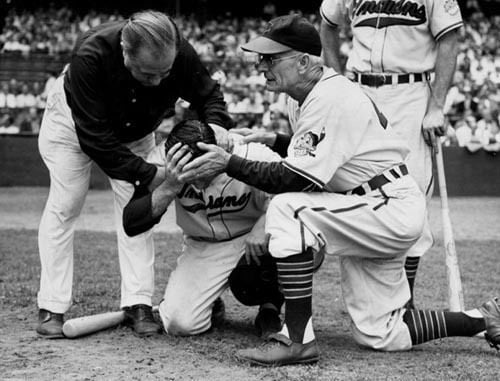
After that, everything fell into place. Batting helmets developed on the baseball field, with their styles and materials constantly being updated to cope with the increasingly high – speed pitches.

The Structure of Batting Helmets
The National Operating Committee on Standards for Athletic Equipment (NOCSAE) has established strict product standards and conducted safety certifications for batting helmets to ensure the safety of players. Today’s batting helmets have a very simple structure, consisting of two layers. First, there is a hard outer shell to withstand the impact of the baseball. Second, the inner layer is a cushioning material, mainly made of foam or sponge, which is mainly used to absorb the vibrations generated when the baseball hits the helmet. The structure is very similar to that of motorcycle helmets and construction site hard hats. However, with the continuous development of batting helmets, they can still be classified into several categories according to different dimensions.

The Types of Batting Helmets
In terms of style, batting helmets are mainly divided into Japanese – style and American – style. The main differences between the two are as follows:
1.The most obvious difference is the position of the screw holes, which is the most prominent way to distinguish between Japanese – style and American – style batting helmets. American – style batting helmets always reserve positions for mounting holes for face masks, helmet straps, or cheek protectors, while Japanese – style helmets rarely have these pre – drilled holes. It should be noted that this is not divided by brand. For example, some Mizuno batting helmets, especially those launched by Mizuno USA, will still have mounting holes even though it is a Japanese brand.
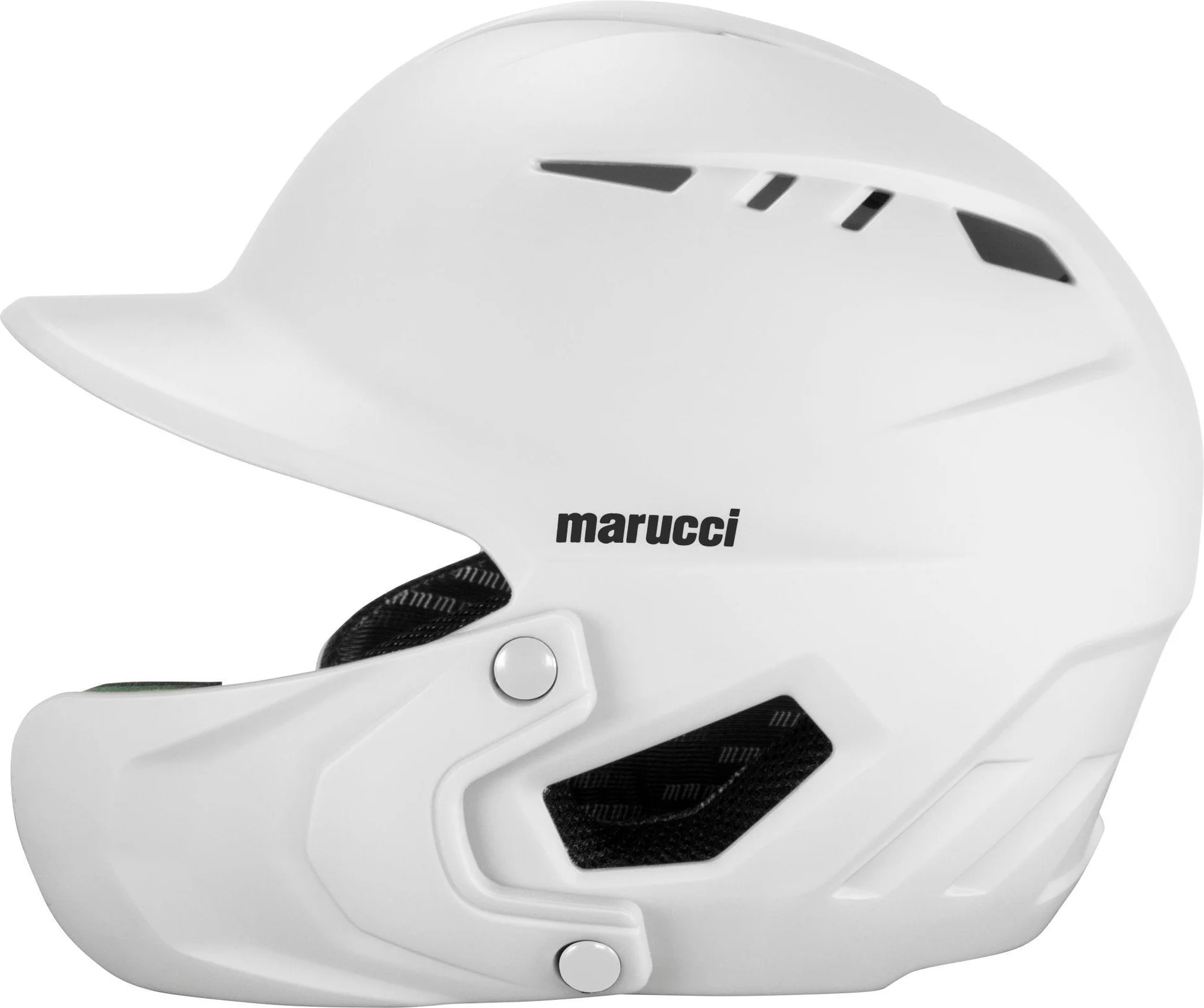

2.The inner cushioning layer of Japanese – style helmets mainly uses foam materials as the main cushioning material, and where sponge materials are used, they are wrapped with artificial leather. From an aesthetic point of view, Japanese – style helmets are more delicate, more comfortable to use, less likely to absorb sweat, and have a longer service life than American – style helmets. The cushioning structure inside American – style helmets is basically dominated by sponge. Although some high – end helmets have gradually incorporated some new materials in recent years, the drawback of sponge is that it will absorb a lot of sweat in summer, emitting an unpleasant odor. And the sponge is likely to be damaged after being put on and taken off several times. Fortunately, manufacturers of American – style batting helmets usually provide sponge kits for players to replace.
Styles, Designs, and Materials of Batting Helmets
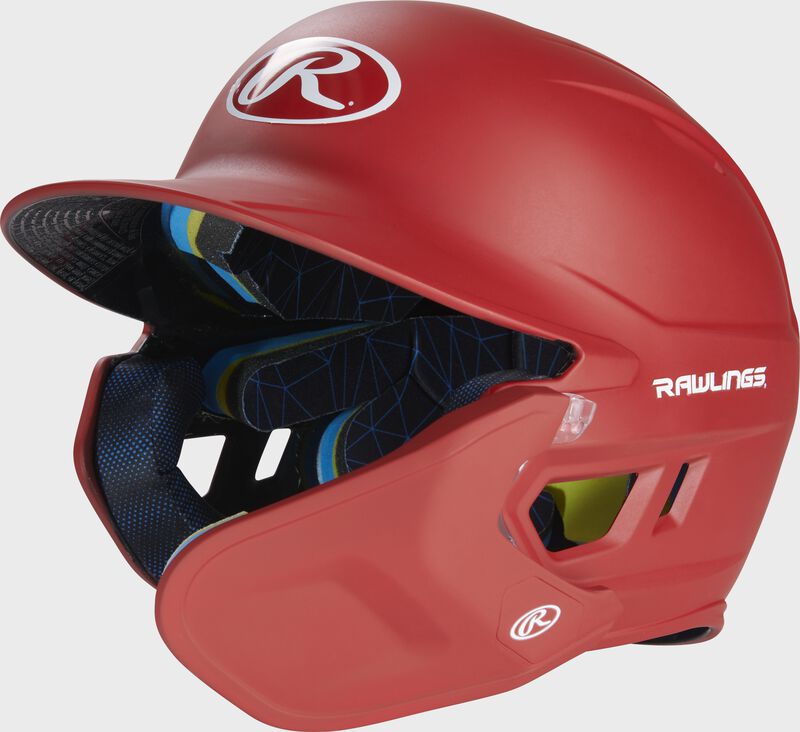
In terms of the specific styles of batting helmets, they are divided into double – ear and single – ear helmets. Here are two Rawlings Mach – series batting helmets, which only differ in single – ear and double – ear designs. In terms of actual construction, there is no difference between them. According to MLB Rule 3.08 on helmets, Minor League players are required to wear double – ear batting helmets, while MLB players must wear single – ear batting helmets or can choose to wear double – ear helmets. In terms of use, as long as the correct left – or right – sided single – ear helmet is selected, it can provide the same level of protection as a double – ear helmet. Moreover, according to online information, single – ear helmets can enable players to hear the coach’s instructions more clearly.
Batting helmets are also made of different materials. Most helmets on the market are made of ABS or polyurethane materials, which are lightweight while ensuring strength. Currently, there are also batting helmets made of carbon fiber, such as this Rawlings Mach Carbon double – ear batting helmet. Although it is labeled as carbon fiber, it is not a pure carbon – fiber helmet but is made by compounding with ABS materials. Incidentally, there is a rumor that MLB professional players’ single – ear batting helmets are made of carbon fiber. However, it should be noted that Rawlings has not publicly sold this product on its official website. What is sold on its official website is just a “replica” that is not made of carbon fiber, and Rawlings has clearly marked that it cannot be used in games. So, the single – ear batting helmets with MLB team logos that you can buy online are mostly such replicas. As for the “professional – used items” on auction websites, since I have never bought them, I can’t confirm the authenticity of the information. Everyone should also be vigilant and be careful to distinguish to avoid being deceived.
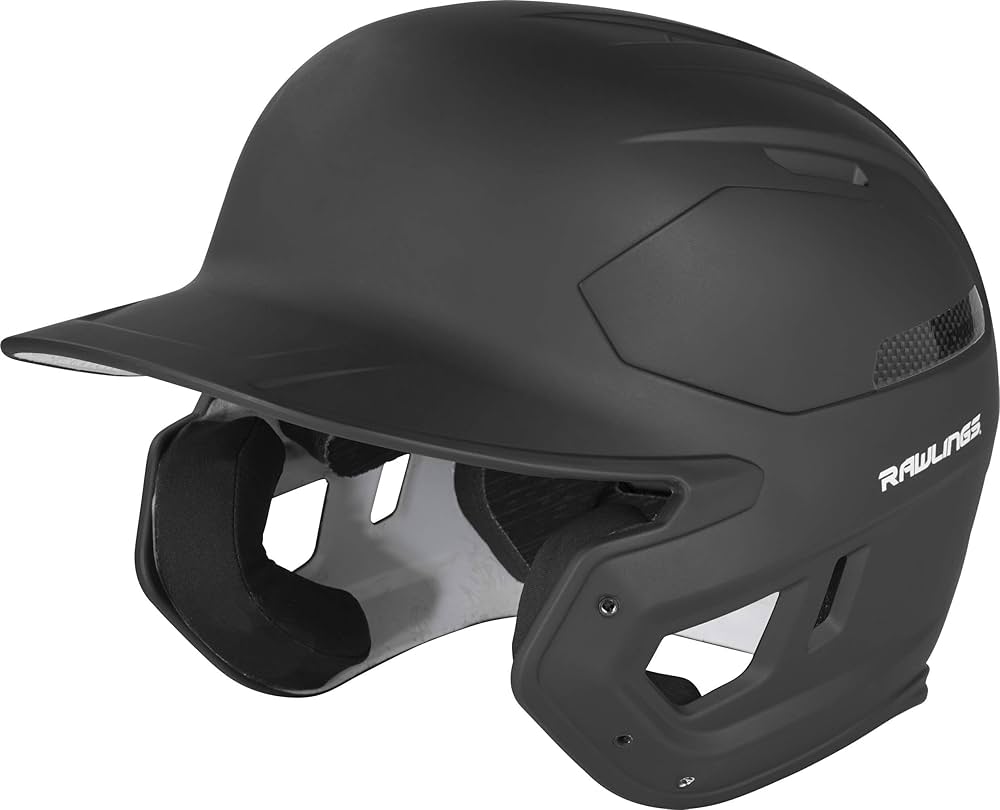
Finally, let’s look at some other designs of baseball batting helmets. Here are two earless helmets. The dark – blue one is mainly worn by base coaches on the field. Some American – style catchers also wear it when using Japanese – style face masks. And this white one is a Japanese – style catcher’s helmet. The protruding design at the back of the head is to prevent the straps of the Japanese – style catcher’s face mask from slipping off. A detail is that there is always a use label inside Japanese – style helmets for users to record the purchase date of the helmet. Japanese helmets generally come with a 3 – year warranty, and Japanese players usually replace their helmets when the warranty expires to ensure safety. American – style helmets don’t have such a strict rule, but players still update their helmets every few years, just like daily necessities. Finally, I would like to appeal to everyone to buy batting helmets that meet safety standards.
What Brand Of Baseball Batting Helmets Is Good?
Rawlings | T-Ball Batting Helmet | COOLFLO Remix
This helmet is designed for younger players, featuring the COOLFLO design for enhanced ventilation. It accommodates head sizes from 6 1/4″ to 6 7/8″ and is available in multiple colors. With over 10,000 reviews and a 4.9 out of 5-star rating, it’s a popular choice among parents.
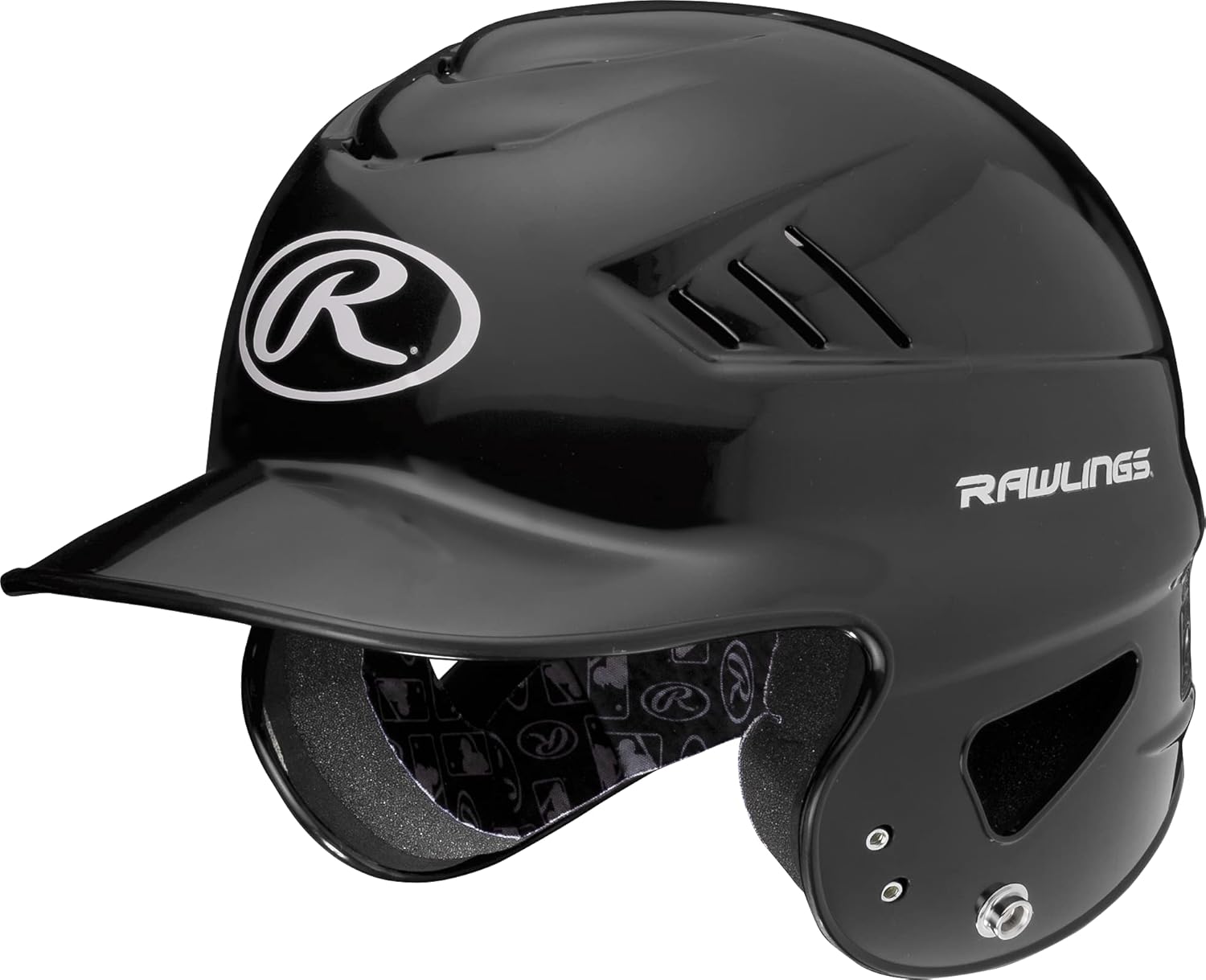
Rawlings | T-Ball Batting Helmets | COOLFLO | Remix | 6 1/4″ – 6 7/8″ | Multiple Colors
Rawlings | COOLFLO Batting Helmet
This helmet features a one-size-fits-most design, accommodating head sizes from 6 1/2″ to 7 1/2″. It offers multiple color options and an optional facemask for added protection. With a 4.8 out of 5-star rating from over 3,300 customers, it’s a reliable choice for many players.
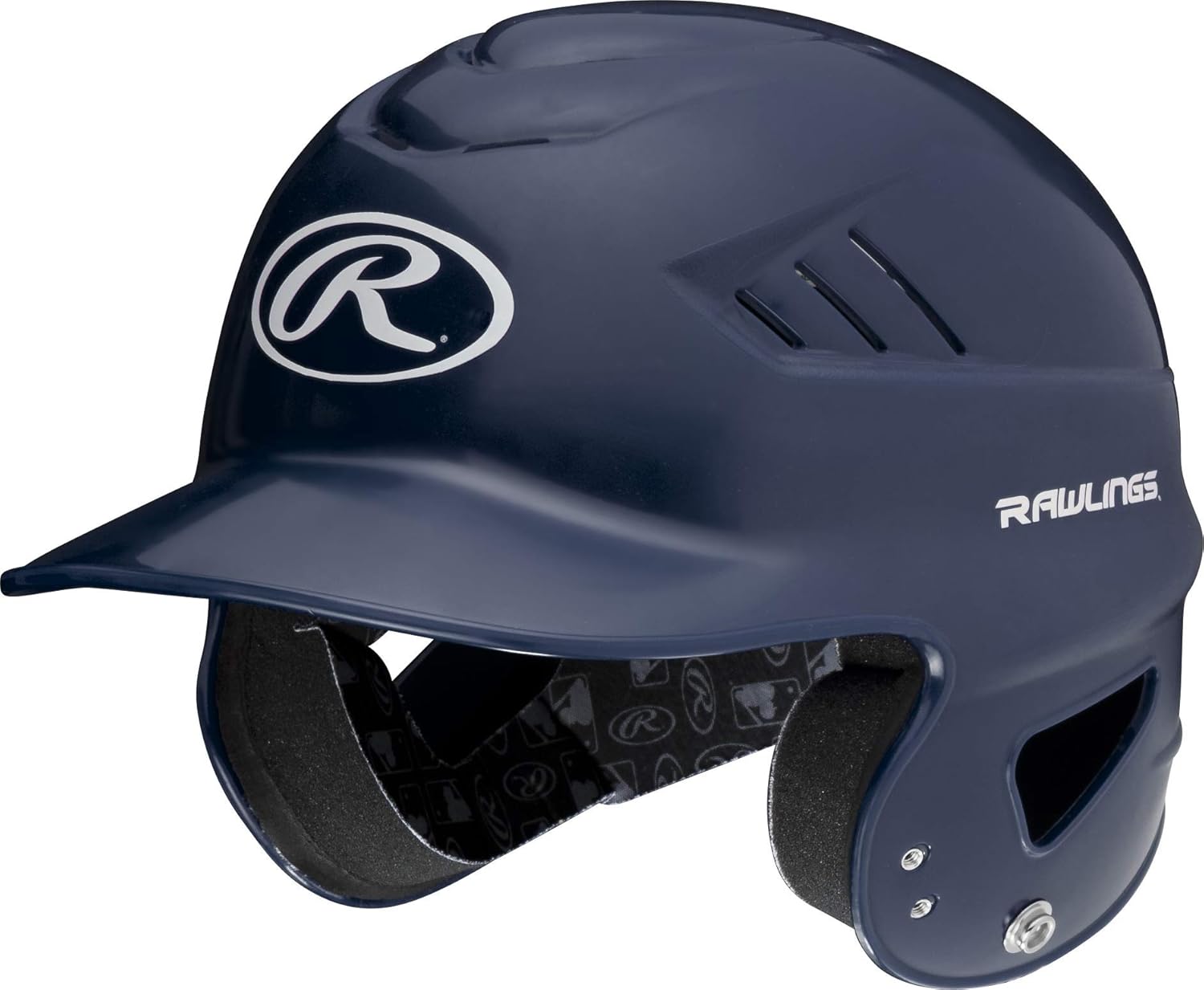
Rawlings | COOLFLO Batting Helmet | 6 1/2″ – 7 1/2″ One Size Fits Most | Multiple Colors/Facemask Option
Easton | Z5 2.0 Baseball Batting Helmet
The Z5 2.0 offers a reversible jaw guard and comes in junior and senior sizes with a matte finish. It’s available in multiple colors and has received high praise for its fit and protection. This helmet holds a 4.8 out of 5-star rating from over 1,600 customers.
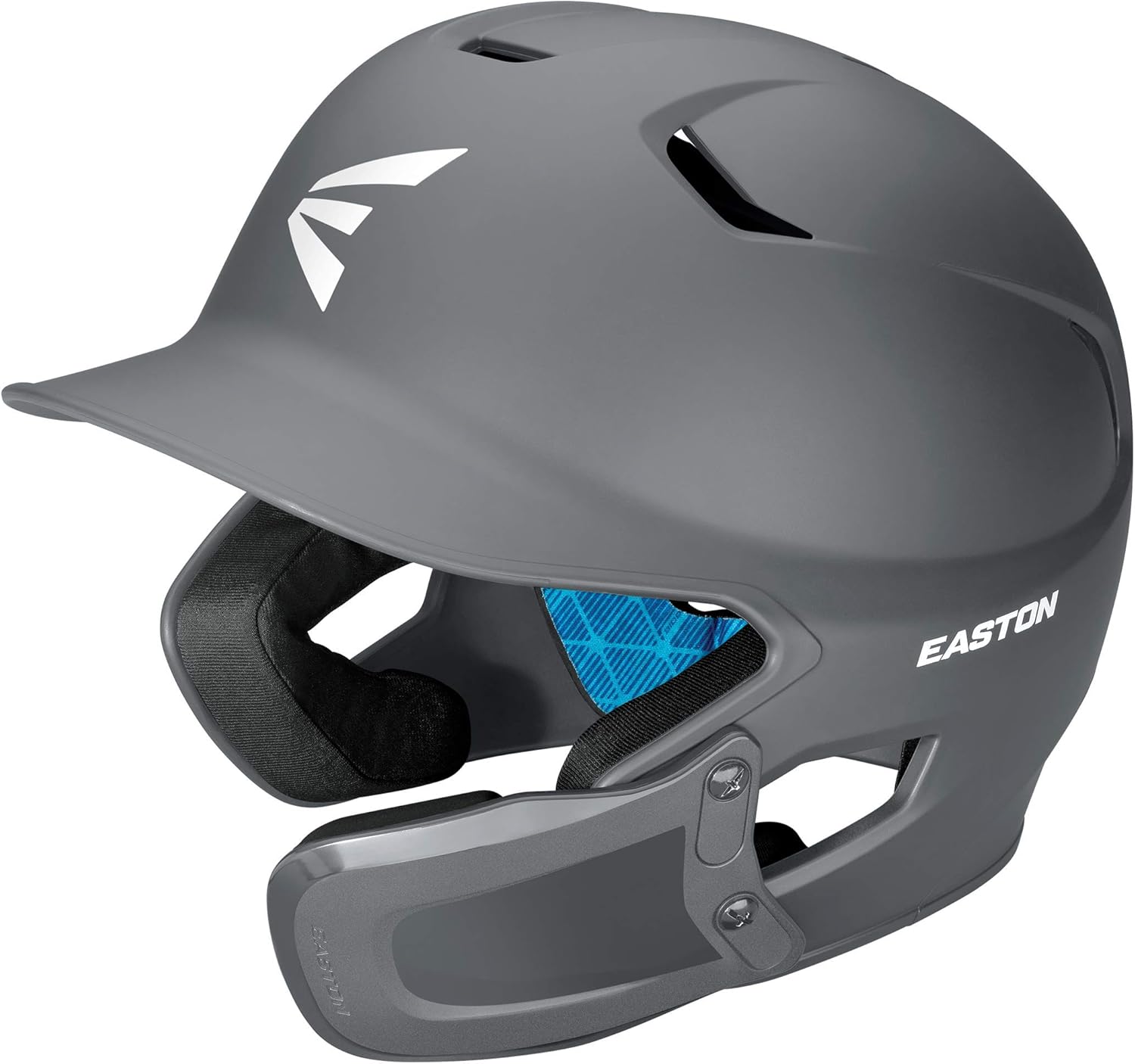
Easton | Z5 2.0 Baseball Batting Helmet | Reversible Jaw Guard | JR/SR Size | Matte | Multiple Colors
EvoShield XVT™ 2.0 Batting Helmet
Known for its sleek design and comfortable fit, the EvoShield XVT™ 2.0 comes in various sizes and colors. It has a 4.8 out of 5-star rating based on nearly 400 reviews.
Marucci DuraVent Batting Helmet
The Marucci DuraVent Batting Helmet features a durable, impact-resistant shell with DuraVent™ technology for enhanced airflow and breathability. Designed for comfort and protection, it includes high-density foam padding for a secure fit and meets NOCSAE safety standards. Its sleek, matte finish and multiple size options make it a great choice for players at all levels.

